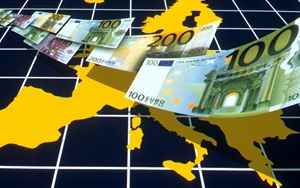(Finance) – The data collected in the April survey highlighted the growing emergence of a two-speed eurozone economy, with the expansion of the tertiary sector in stark contrast to the slowdown in manufacturing. Yet, at the start of the second quarter, eurozone private sector output increased at the fastest rate in seven months, with demand once again underpinned by the easing of anti-restrictions. COVID-19.
In the composite data they also appeared evident signs of frailty given that new foreign orders fell for the second consecutive month, and confidence indicated values significantly lower than those of February (therefore before the Russian invasion of Ukraine) due to galloping inflation and growing geopolitical tensions that have both weighed on optimism.
At the same time, April price data highlighted a highly inflationary climate in the eurozone, with sales prices for goods and services rising at unprecedented rates due to strong cost pressures.
L” Seasonally adjusted S&P Global PMI of Eurozone Composite Manufacturing rose in April to 55.8 from 54.9 in Marchshowing an acceleration in the expansion of eurozone economic activity, the highest since September 2021.
From a national point of view, the latest data collected by the survey showed that, among the eurozone countries a France indicated the fastest growth, with the strongest expansion in over four years of the private sector. Also in Spain And Italy faster expansions were recorded, while the Germany reversed the upward trend, slowing to three-month lows.
The S&P Global PMI Eurozone Tertiary Business Index increased in April to 57.7, from 55.6 in March, signaling the thirteenth consecutive month of eurozone tertiary production expansion. Furthermore, the expansion was the strongest since last August and indicated a further improvement from the recent lows in January.
Analyzing the final data of the Eurozone Composite PMI, Chris Williamson, Chief Business Economist at S&P Global said: “Unfortunately the acceleration in production growth observed during the month was accompanied by a new spike in costs, which fueled a record increase in average selling prices for goods and services. The combination of a more strong in the second quarter and the persistent acceleration of inflation signaled by the survey, will reinforce the hypothesis that the ECB could start raising interest rates immediately after the July meeting. However, the downside risks to growth have increased, which means that managers may be taking a more cautious approach towards restrictive policies. As we approach summer, the flow of data will therefore be crucial for monetary policymakers who will have to assess whether the resilience of the eurozone economy can be lasting. ”
